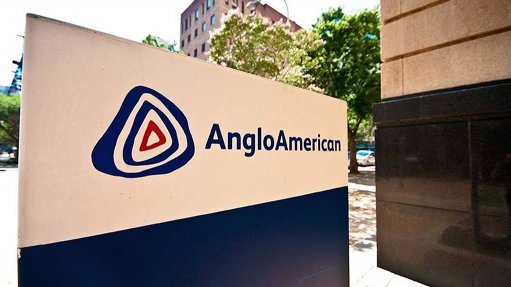Transnet strike deprived South Africa of opportunity to move R65.3bn worth of goods
South Africa lost the opportunity to move R65.3-billion worth of goods during the recent 11 days of industrial action at the country’s ports, says South African Association of Freight Forwarders (SAAFF) CEO Dr Juanita Maree.
“Some of that will possibly move later, but the rest is gone – and gone forever.”
In contrast to this, the wage increase cost – if adopted across the board for all workers at Transnet – is R1.5-billion.
SAAFF represents more than 300 clearing and forwarding agents, accounting for more than 80% of the trade goods moving in and out of South Africa.
Maree says there is a need in the country for growing maturity in resolving matters amicably, in a timely and efficient manner, and to strengthen the partnerships between government and strategic stakeholders through early consultation to enable prevention rather than cure, “as risk mitigation is our joint responsibility to the smooth running of our national economy”.
“We must learn the stark lessons provided by these operational disasters, or we are going down an endless spiral with the worst possible outcome,” warns Maree.
“If goods can’t move, the economy stops. And if the economy stops, the impact is hugely negative for anything related to the movement of cargo – including time, cost and service reliability.
“With the economy’s circular flow, ordinary South Africans will suffer in the end – the very individuals who went on strike against a wage offer way below the inflation figure.”
Maree says while SAAFF is “very pleased” that a wage agreement has finally been reached in the ports sector, the association must stress that the hard work only starts now.
“According to our consolidated reports, most port terminals are operating at productivity levels that are somewhere between medium and normal.
“So, although it might seem that we are making a return to full operational status, we are certainly not there yet,” she emphasises.
“In the aftermath, beyond the strike, barring any further destruction, a complete restoration of normal functionality will only happen in early 2023, as the consequences of one day’s worth of stoppage have been shown to result in anything up to ten days needed for recovery.”
South Africa must learn from this experience and adopt better operational practices to improve the country’s logistics performance, notes Maree.
“We reiterate that this can only be achieved by close collaboration between all the parties – business, labour and government.”
Maree proposes a number of solutions to grease the wheels of the South African logistics sector.
“We need backup port facilities to evacuate the ports.
“We have a high freight demand; therefore, only a multimodal approach – with all parties operating efficiently – will have a chance of satisfying our demand.”
This means South Africa needs a robust functional rail sector, especially when moving goods from the country’s ports.
The country also needs precise policy alignment to allow for the practical execution of moving goods.
“The functioning of the supply chain, and the economic extent of policies and actions that affect it, [are] clearly not fully understood by decision-makers,” says Maree.
“The government often asks the private sector to assist in picking up the cost, such as increased taxes and levies, but this help must be reciprocated with the private sector’s . . . meaningful involvement in operations.”
Comments
Press Office
Announcements
What's On
Subscribe to improve your user experience...
Option 1 (equivalent of R125 a month):
Receive a weekly copy of Creamer Media's Engineering News & Mining Weekly magazine
(print copy for those in South Africa and e-magazine for those outside of South Africa)
Receive daily email newsletters
Access to full search results
Access archive of magazine back copies
Access to Projects in Progress
Access to ONE Research Report of your choice in PDF format
Option 2 (equivalent of R375 a month):
All benefits from Option 1
PLUS
Access to Creamer Media's Research Channel Africa for ALL Research Reports, in PDF format, on various industrial and mining sectors
including Electricity; Water; Energy Transition; Hydrogen; Roads, Rail and Ports; Coal; Gold; Platinum; Battery Metals; etc.
Already a subscriber?
Forgotten your password?
Receive weekly copy of Creamer Media's Engineering News & Mining Weekly magazine (print copy for those in South Africa and e-magazine for those outside of South Africa)
➕
Recieve daily email newsletters
➕
Access to full search results
➕
Access archive of magazine back copies
➕
Access to Projects in Progress
➕
Access to ONE Research Report of your choice in PDF format
RESEARCH CHANNEL AFRICA
R4500 (equivalent of R375 a month)
SUBSCRIBEAll benefits from Option 1
➕
Access to Creamer Media's Research Channel Africa for ALL Research Reports on various industrial and mining sectors, in PDF format, including on:
Electricity
➕
Water
➕
Energy Transition
➕
Hydrogen
➕
Roads, Rail and Ports
➕
Coal
➕
Gold
➕
Platinum
➕
Battery Metals
➕
etc.
Receive all benefits from Option 1 or Option 2 delivered to numerous people at your company
➕
Multiple User names and Passwords for simultaneous log-ins
➕
Intranet integration access to all in your organisation

















